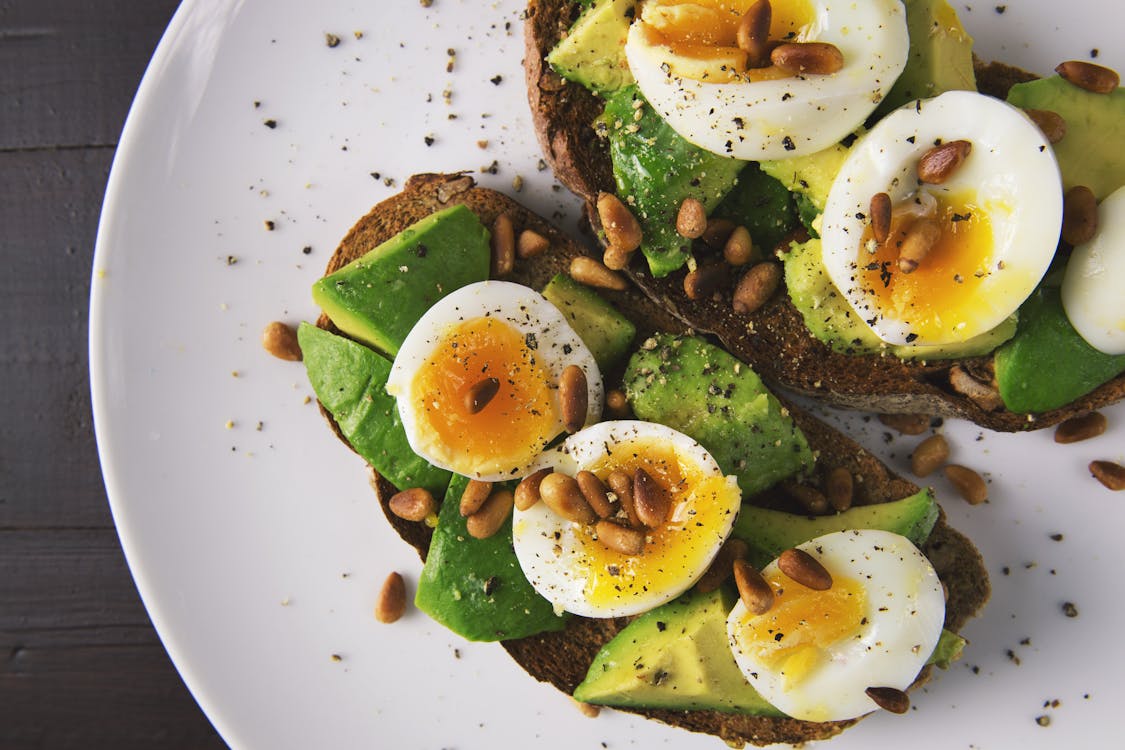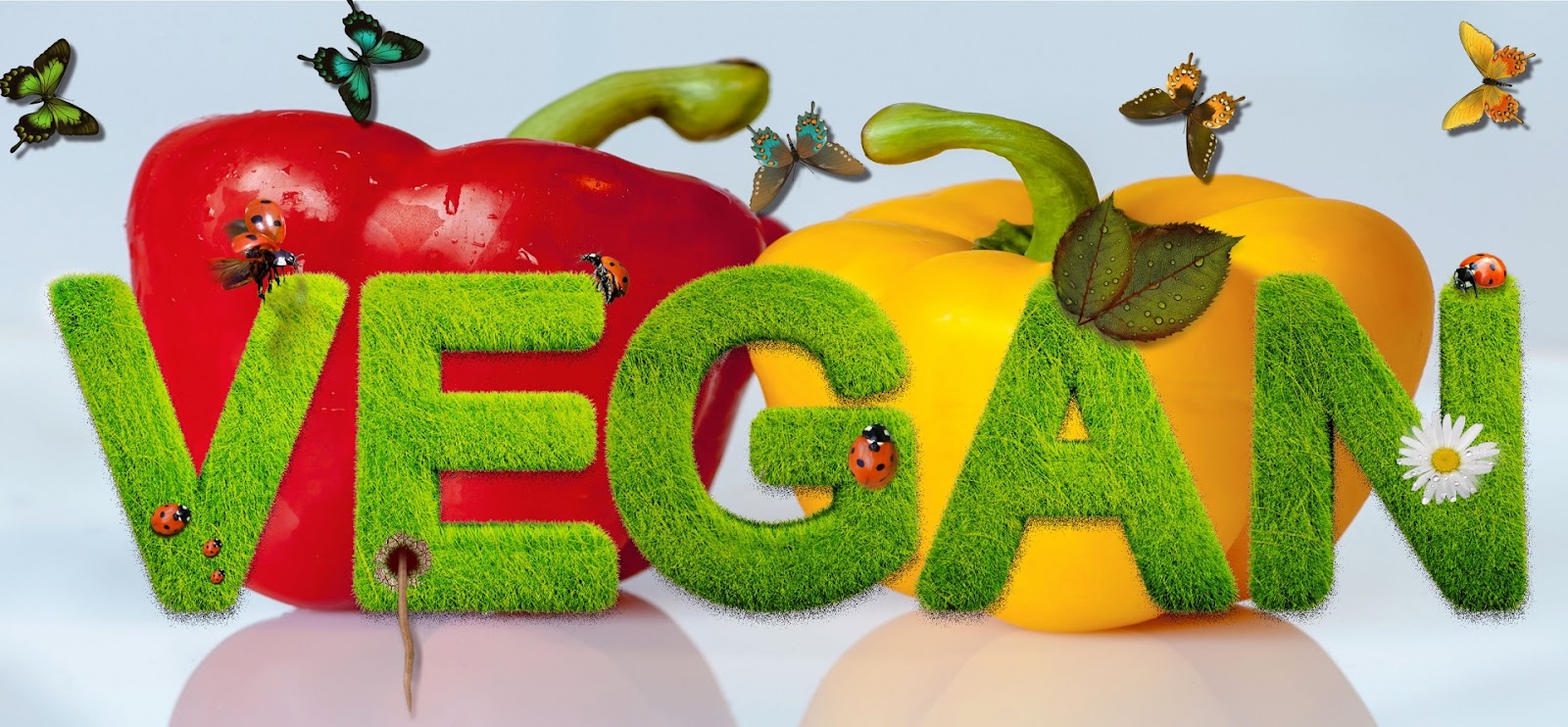The Ultimate Showdown: Vegan vs. Keto Diet - Unveiling the Best Dietary Choice
Understanding the Vegan and Keto Diets
As a health-conscious individual, I have always been intrigued by the various dietary choices available in the modern world. Two dietary approaches that have gained considerable attention in recent years are the vegan and keto diets. Both diets have their unique philosophies and principles, and understanding them is crucial before making an informed decision about which one might be the best fit for me.
The vegan diet is a plant-based dietary approach that excludes all animal products, including meat, dairy, eggs, and even honey. Embracing a vegan lifestyle involves consuming a diverse range of fruits, vegetables, grains, legumes, nuts, and seeds. On the other hand, the keto diet, short for ketogenic diet, is a low-carbohydrate, high-fat diet designed to induce a state of ketosis in the body. This metabolic state involves the production of ketones from fat stores, which serve as the primary source of energy instead of glucose.
White Hot Weight Loss Offer Is Crushing It Going STRONG in 2023! Get Started Now
Understanding the core principles of these two diets is essential for making an informed decision about my dietary path. While the vegan diet emphasizes plant-based nutrition and ethical considerations, the keto diet focuses on carbohydrate restriction and fat adaptation for energy production. Both diets have their unique benefits and challenges, and delving deeper into their pros and cons is the key to unraveling the best dietary choice for my lifestyle and well-being.
Pros and Cons of the Vegan Diet
The vegan diet offers a myriad of potential benefits, including a reduced risk of chronic diseases such as heart disease, certain cancers, and type 2 diabetes. By emphasizing whole, plant-based foods, the diet is rich in essential nutrients, fiber, and antioxidants, promoting overall health and well-being. Additionally, embracing a vegan lifestyle aligns with ethical and environmental considerations, as it reduces the demand for animal products and minimises the carbon footprint associated with animal agriculture.
However, the vegan diet also comes with its challenges. One of the primary concerns is the potential for nutrient deficiencies, particularly in vitamin B12, iron, calcium, and omega-3 fatty acids. Without careful planning, vegans may struggle to meet their nutritional needs, leading to potential health issues in the long run. Furthermore, navigating social situations and finding suitable dining options can be challenging, as vegan choices may be limited in certain settings.
Pros and Cons of the Keto Diet
The keto diet, on the other hand, is known for its potential to promote weight loss, improve metabolic health, and enhance mental clarity and focus. By reducing carbohydrate intake and increasing fat consumption, the body transitions into a state of keto sis, where it efficiently burns fat for fuel. This metabolic shift can lead to rapid and sustained weight loss, making the keto diet an attractive option for individuals seeking to manage their weight and metabolic health.
Despite its potential benefits, the keto diet also has its drawbacks. Adhering to a strict macro-nutrient ratio and monitoring ketone levels can be challenging and may require meticulous meal planning and tracking. Additionally, some individuals may experience initial side effects, often referred to as the "keto flu," as the body adjusts to using ketones as its primary fuel source. Long-term sustainability and potential impacts on cholesterol levels are also areas of concern when considering the keto diet as a dietary choice.
Introducing The Ikaria Lean Belly Juice
Vegan Keto Diet: What is it and How Does it Work?
The concept of combining the principles of veganism and the ketogenic diet has given rise to the vegan keto diet, which aims to reconcile the plant-based approach with the metabolic benefits of keto sis. In essence, the vegan keto diet involves adhering to a low-carbohydrate, high-fat, and moderate-protein eating pattern while exclusively consuming plant-based foods. This dietary approach requires careful planning to ensure adequate nutrient intake while maintaining keto sis.
By focusing on plant-based sources of healthy fats, such as avocados, coconut oil, and nuts, and incorporating low-carbohydrate vegetables and protein-rich plant foods, individuals following the vegan keto diet can achieve keto sis while meeting their nutritional needs. The diet typically excludes grains, legumes, and high-carbohydrate fruits, emphasizing non-starchy vegetables, plant-based proteins, and plant fats as the primary components of meals.
Understanding the mechanics of the vegan keto diet and how it integrates the core principles of both dietary approaches is essential for those considering this unique eating pattern. By embracing the plant-based philosophy of veganism and harnessing the metabolic advantages of ketosis, individuals can potentially reap the combined benefits of both dietary paths.
Vegan Keto Diet Plan and Recipes
Embarking on a vegan keto journey requires careful meal planning and an understanding of suitable food choices to support both keto sis and optimal nutrition. A well-structured vegan keto diet plan should emphasis whole, nutrient-dense plant foods while minimising carbohydrate intake and prioritizing healthy fats. Incorporating a variety of colourful vegetables, plant-based proteins, and sources of healthy fats is crucial for achieving a balanced and sustainable vegan keto diet.
GET YOUR CUSTOM KETO
DIET PLAN
Sample Vegan Keto Diet Plan
Breakfast:
- Avocado and spinach smoothie with coconut milk and protein powder
- Chia seed pudding with almond milk and mixed berries
Lunch:
- Zucchini noodles with creamy avocado sauce and grilled tofu
- Mixed green salad with olive oil and lemon dressing, topped with pumpkin seeds
Dinner:
- Cauliflower rice stir-fry with marinated temped and assorted vegetables
- Coconut curry with tofu and low-crab vegetables
Vegan Keto Recipes
Avocado and Spinach Smoothie
Ingredients:
- 1 ripe avocado
- 1 cup fresh spinach
- 1 scoop plant-based protein powder
- 1 cup coconut milk
- Ice cubes
Instructions:
- In a blender, combine the avocado, spinach, protein powder, and coconut milk.
- Blend until smooth and creamy.
- Add ice cubes as desired and blend again until well combined.
Cauliflower Rice Stir-Fry
Ingredients:
- 2 cups cauliflower rice
- 1 block temped, cubed
- Assorted vegetables (bell peppers, broccoli, snow peas)
- 2 tbsp coconut amino
- 1 tbsp sesame oil
- Minced garlic and ginger
Instructions:
- In a large skillet, saute the temped until lightly browned. Set aside.
- In the same skillet, stir-fry the assorted vegetables with minced garlic and ginger.
- Add the cauliflower rice, cooked temped, coconut amino, and sesame oil. Cook until heated through.
Health Benefits of Vegan Keto Diet
The vegan keto diet offers a unique array of potential health benefits, stemming from the combined advantages of both dietary approaches. By emphasizing plant-based nutrition and harnessing the metabolic benefits of ketosis, individuals following the vegan keto diet may experience improved weight management, enhanced insulin sensitivity, and increased mental clarity. The low-carbohydrate, high-fiber nature of the diet can also support stable blood sugar levels and promote satiety, potentially benefiting those with metabolic conditions or seeking weight loss.
Furthermore, the vegan keto diet may offer anti-inflammatory and antioxidant properties, as it prioritizes whole, plant-based foods rich in phytonutrients and essential vitamins and minerals. By reducing reliance on processed foods and animal products, individuals can potentially lower their risk of chronic diseases and promote overall well-being. The sustainable and environmentally conscious aspects of the vegan keto diet align with ethical considerations, offering a holistic approach to personal and planetary health.
Challenges and Considerations of Vegan Keto Diet
While the vegan keto diet presents a compelling combination of dietary principles, it also comes with its unique challenges and considerations. One of the primary concerns is the potential difficulty in meeting essential nutrient requirements, particularly vitamin B12, iron, and omega-3 fatty acids, as these nutrients are predominantly found in animal-derived sources. Careful planning and potentially supplementation may be necessary to address these nutritional gaps and ensure long-term health on a vegan keto diet.
Moreover, navigating the practical aspects of meal preparation and dining out can be challenging, as the vegan keto diet requires a thoughtful selection of plant-based, low-carbohydrate foods and suitable cooking techniques. Finding a balance between achieving and maintaining ketosis and meeting nutritional needs from a diverse range of plant foods may require experimentation and personalized adjustments. Additionally, the sustainability and long-term adherence to a vegan keto lifestyle should be carefully considered to ensure that the diet aligns with individual health goals and preferences.
Tips for Transitioning to Vegan Keto Diet
Transitioning to a vegan keto diet requires thoughtful planning and a gradual approach to incorporating the core principles of both dietary paths. As I consider embarking on this unique dietary journey, I have gathered several practical tips to support a smooth transition to the vegan keto lifestyle.
Educate Yourself: Take the time to understand the fundamentals of both the vegan and keto diets, including suitable food choices, nutrient considerations, and potential benefits and challenges. By equipping yourself with knowledge, you can make informed decisions and set realistic expectations for your transition.
Gradual Adjustment: Instead of abruptly overhauling your entire diet, consider gradually reducing carbohydrate intake while increasing healthy fats and plant-based protein sources. This phased approach can help your body adapt to utilising fat for fuel and minimize potential discomfort during the transition.
Meal Planning: Invest time in creating a well-rounded vegan keto meal plan that incorporates a variety of low-carbohydrate vegetables, plant-based proteins, and healthy fats. By having a structured plan in place, you can ensure nutrient adequacy and maintain ketosis while enjoying diverse and flavourful meals.
Seek Support and Resources: Engage with the vegan and keto communities to seek advice, recipes, and support for your transition. Online forums, social media groups, and reputable resources can provide valuable insights and practical tips for navigating the nuances of the vegan keto diet.
Monitor Your Well-Being: Pay attention to your body's signals and energy levels as you transition to the vegan keto diet. Stay attuned to any potential nutrient deficiencies or imbalances and consult with a healthcare professional if needed to optimize your dietary approach.
By implementing these practical tips and approaching the transition to a vegan keto diet with mindfulness and patience, individuals can navigate the unique intersection of plant-based nutrition and ketosis while reaping the potential health benefits of this dietary path.
The Smoothie Diet: 21 Day Rapid Weight Loss Program
Comparing the Environmental Impact
The environmental impact of dietary choices has become an increasingly significant consideration in the context of global sustainability and climate change. When comparing the environmental implications of the vegan and keto diets, several factors come into play, including land use, water consumption, greenhouse gas emissions, and overall ecological footprint.
The vegan diet, characterized by its exclusion of animal products, has been lauded for its potential to reduce the environmental burden associated with animal agriculture. By minimizing the demand for meat, dairy, and eggs, individuals following a vegan lifestyle can contribute to lower greenhouse gas emissions, reduced land use for livestock farming, and conservation of water resources. Embracing plant-based nutrition aligns with principles of environmental sustainability and animal welfare, offering a holistic approach to dietary choices.
On the other hand, the keto diet's environmental impact is influenced by the sources of fats and proteins consumed. While a well-formulated keto diet may prioritize sustainable and ethically sourced animal products, such as grass-fed meat and pasture-raised eggs, the reliance on animal-derived foods can pose challenges in terms of ecological sustainability. However, the emphasis on whole, minimally processed foods and the potential for reduced food waste in a ketogenic eating pattern may contribute to overall environmental considerations.
Conclusion: Choosing the Right Dietary Path
As I navigate the wealth of information surrounding the vegan and keto diets, I am struck by the nuanced considerations and potential benefits each dietary approach offers. The vegan diet, with its emphasis on plant-based nutrition and ethical considerations, holds promise for promoting health, reducing the risk of chronic diseases, and aligning with environmental sustainability. Conversely, the keto diet's metabolic benefits, including weight management and improved metabolic health, present compelling advantages for individuals seeking to harness the body's fat-burning potential.
The emergence of the vegan keto diet represents a unique fusion of these dietary philosophies, offering the potential to reconcile plant-based principles with the metabolic advantages of ketosis. By carefully planning and crafting a well-rounded vegan keto diet, individuals can navigate the challenges and leverage the combined health benefits of both dietary paths. The environmental implications of dietary choices further underscore the interconnected nature of personal and planetary health, prompting a thoughtful evaluation of the environmental impact of our dietary decisions.
In the quest for the best dietary choice, I am reminded that individual needs, preferences, and health goals play a pivotal role in shaping our dietary paths. Whether embracing the ethical and health considerations of a vegan lifestyle, harnessing the metabolic benefits of a ketogenic approach, or exploring the synergies of a vegan keto diet, the key lies in informed decision-making, mindful consumption, and a holistic view of personal and planetary well-being.
CTA: As you contemplate your dietary journey, I encourage you to explore the diverse array of plant-based and ketogenic resources, recipes, and communities to support your health and well-being. By embracing an informed and conscious approach to your dietary choices, you can embark on a path that resonates with your values and fosters holistic health for yourself and the planet.







